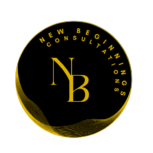You’re ready to start your business but now you’re stuck at the first big question: How should I register it?
LLC? Sole Proprietor? Maybe just get a DBA and call it a day?
This is where a lot of first-time entrepreneurs hit a wall. Picking the wrong structure can cost you money, time, and even legal protection. So let’s break it down in real, easy-to-understand terms.
1. Sole Proprietorship: The Easiest but Riskiest
If you start selling a product or service under your own name without registering anything, you’re a sole proprietor by default.
- Pros: Free. Easy. No paperwork.
- Cons: You and the business are the same legally; meaning your personal money and assets are on the line if something goes wrong.
Best For: Side hustlers testing an idea with minimal risk.
Not Ideal If: You want protection, legit funding, or to grow.
2. DBA (Doing Business As): Looks Legit, But…
A DBA lets you operate under a business name instead of your government name. It’s not a business structure—it’s just a nickname.
- Pros: Cheap way to brand yourself; can open a business bank account with it.
- Cons: No legal protection. Still taxed like a sole proprietor. Can give a false sense of security.
Best For: Freelancers, solo entrepreneurs, or those who just want to appear more professional.
Not Ideal If: You want full business protection and credibility.
3. LLC (Limited Liability Company): The Sweet Spot
Forming an LLC separates you (the person) from your business (the company). It’s more official, but still flexible and affordable.
- Pros: Protects your personal assets. Helps with business credit. Easier to get funding. Makes you look serious.
- Cons: Costs more upfront. Some paperwork. Taxes can vary depending on your setup.
Best For: Anyone serious about growing, protecting themselves, and building credit and credibility.
Real Talk: Which One Should You Choose?
If you’re just testing the waters and don’t have much at risk, starting as a sole prop or with a DBA can work—for now.
But if you’re serious about doing business right, protecting yourself, and growing… get that LLC. Period.
Bonus Tip: It’s deeper than just the name.
Whichever you choose, you’ll likely still need:
- An EIN (even as a sole prop..it helps with taxes and business banking)
- A business bank account (never mix your personal and business money)
- A simple operating agreement (even if it’s just you, funders love it)
Final Words:
Don’t let the paperwork stop your progress. Choosing the right structure early helps you move like a boss later. And if it still feels confusing? That’s exactly what New Beginnings Consultations is here for. We’ll break it down, walk you through it, and make sure your business is set up the right way, the first time.
